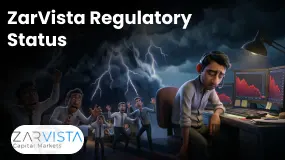Abstract:Despite significant government financial involvement, the country's textile and apparel industry has performed poorly, which has angered some observers who have accused industry participants of mismanaging cash.

Despite significant government financial involvement, the country's textile and apparel industry has performed poorly, which has angered some observers who have accused industry participants of mismanaging cash.
They claimed that the operators had continued to import textiles that were already manufactured rather than engage in genuine production.
Government efforts to revive the sector through fiscal policy and monetary measures don't appear to have had the desired impact, according to some experts who claim that some corporations were simply trading with the money intended to revive the struggling sector. Ilyasu Saleh, Chairman of the Manufacturers Association of Nigeria's (MAN) Textile Group, denied the claim that textile businesses were roundtripping foreign exchange, claiming it to be baseless.
“If I hear any firm doing it, as chairman of the Textile Group of MAN, that organization would be sanctioned,” he declared. Even the working capital required for businesses to achieve it is lacking. The CBN would have known about it and taken action if it had actually occurred, but it is baseless, Saleh said.
The Nigerian textile industry has traditionally been a significant component in the manufacturing sector of the economy, once ranking second only to the public sector in terms of employment.
Unfortunately, due to a lack of adequate power, inconsistent government policies, the widespread smuggling of foreign textiles, insecurity, and a lack of foreign currency, among other factors, it has ceased to be a significant contributor to foreign exchange earnings and the creation of jobs in Nigeria.
Saleh bemoaned the situation of the textile sector and said that a significant portion of the textiles sold in the nation are smuggled in from abroad and imported, costing the nation potential annual Value Added Tax (VAT) money. He said that since imported apparel has dominated the markets, the suspension of payment of Export Expansion Grant (EEG) claims has added to the problems of operators, restricting their ability to export and even enhance production.
He claims that operators have been selling below their actual costs of production, and this has continued to be unsustainable.
Government organizations and the military forces no longer purchase goods from regional producers but instead import from China.
Executive Order 003 is not effective. Nobody is abiding by the law. The deteriorating infrastructure and administrative expenses are not being addressed. Energy prices are also quite high and have an impact on how factories operate.
He emphasized how the textile business was being negatively impacted by decreased patronage. Despite presidential order 003, the Nigerian agencies and MDAs don't patronize; instead, they import. Import costs have increased lately. the expense of action. Enterprise is booming.
Lack of foreign exchange is also hurting the sector. Since we cannot make the raw components here, we import them. Paraffin wax used to be produced by NNPC, but they no longer do so, thus we must import. We are unable to import at all due to the lack of foreign currency. Because of this, the textile industry is still dead.
Speaking about the CBN's actions, he said that the textile industries' inability to make repayments is caused by a lack of sales. Due to poor local textile sales and high power prices, the funds supplied to enterprises make it impossible for us to repay what we borrowed for the intervention. Additionally, there were several unfulfilled promises made throughout the interventions.
We used the money and the raw materials to purchase new equipment, but because of the high cost of manufacturing, we are unable to sell them. Paying back the money was neither simple or straightforward.
Saleh further stated that although the federal government had pledged to “revamp the value chain, which consists of cotton production, spinning, and weaving,” the involvement had only gone as far as cotton production.
Even with cotton output, farmers have found it tough due to insurgency.
While cotton is currently selling for $1,600, I purchased it last year for #520. Additionally, it will be quite costly for me to pass on this high cost to the customers.
The government is a significant consumer, but instead of supporting the business, they import inferior products from China. I manufacture common tarpaulin made entirely of cotton. However, they would rather import plastic tarpaulin, which is inappropriate and discouraging.
Most industries don't actually produce to their full capability. We were able to update our textile machines even though the grant significantly assisted in retooling the textile sector. To benefit others, the cash should go up the value chain. 80 percent of the issue will be resolved if the government and the public support the sector.
Diesel costs £800 per liter, which is unfavorable. The industry's increased reliance on fuel due to electricity problems makes our products less competitive. They frequently criticize our products' high prices, which are caused by the challenging business climate. If the environment is better, our products will become more competitive.










